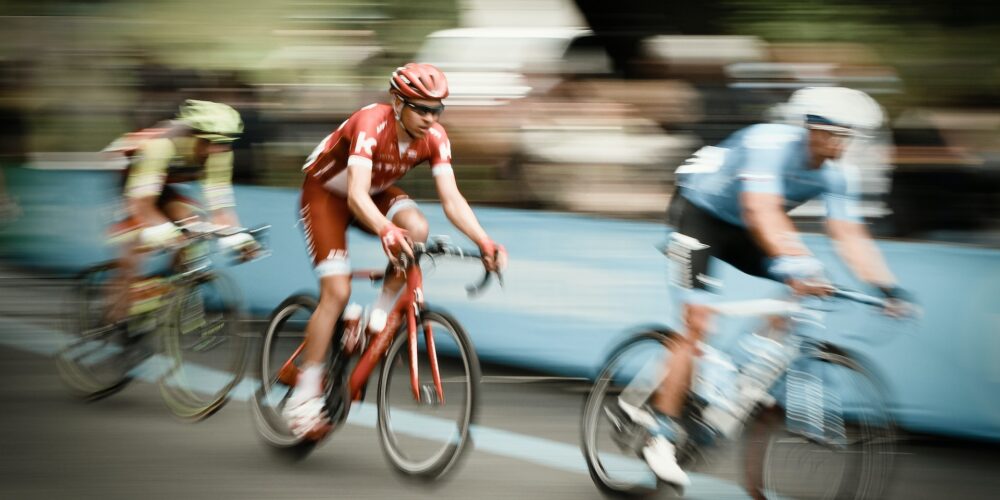We have richer lives when we are not consumed by competition

You’re a schoolchild, doing your best in your lessons. You get good grades most of the time, sometimes exceptional ones. You’re not top of your class, but you’re in the mix. All is well, right? Not really. Because your teachers and parents keep pointing you to the achievements of your classmates who are clocking the very best grades and getting awards and accolades. You could be like them, they say. Push yourself more. Beat them.
You’re now an employee, settled down with a family. You have a stable income; your expenditure is under control; you’re managing to put something aside for savings and investment every so often. All good, right? Nah. When scrolling through social media, you see some of your friends and relatives posting pics of their holidays, their new homes, their snazzy cars. Now you feel inadequate. What was giving you satisfaction earlier now seems meagre and unaccomplished in comparison. You start feeling ashamed of your lack of advancement and ambition.
When I was a student, I came across these words in the famous poem, Desiderata: “If you compare yourself to others, you may become vain and bitter; for always there will be greater and lesser persons than yourself.” The message struck a chord, and came at an opportune time. Up until then I too had been caught up in the compare-and-compete rat race. I learned to relax, and came to regard winning and defeating as an unimportant part of this life.
At this stage of reading today’s column you might be wanting to shout something. Isn’t advocating a lack of competitive spirit the slippery slope that leads to mediocrity? Aren’t comparison and competition a spur to betterment? Don’t we improve ourselves because of the pressure we feel from others?
Indeed, I went on to become a strategy advisor for leading corporations. Isn’t defeating competitors the point of business strategy? Isn’t being better/quicker/cheaper/friendlier than the pack the whole aim?
Hear me out.
The point is not to lapse into mediocrity and underachievement; the point is to use the right spurs to progress. As I wrote once on this page, be better than the person you were, not the person beside you. It is indeed a noble aim to get better at the things that matter to us as we go on in this life—better at our crafts and professions, and better human beings as well. But that progress should not be measured against others; it should come from inside us. The benchmark should not be out there somewhere; rather, we should aim to become better than what we were.
To keep gazing over the fence is to swallow a slow-acting poison, one that generates lifelong feelings of envy and inadequacy. In their book The Courage to be Disliked, two Japanese authors—Ichiro Kishimi and Fumitake Koga—update the psychological teachings of Alfred Adler. They point out that life should not be viewed as a competition—we need not climb higher by kicking others down. We can all be moving forward—including those ahead of us and those behind us. It is enough to keep moving, without racing anyone.
To be in constant competition is to live a life of fear—even when you are the one winning! As the book’s authors point out, you will never have a moment’s peace. Those who have been crowned can also be dethroned—and will be. Win or lose, you will always be tense.
A higher form of living, when released from the mental prison of competition, is to celebrate all achievement. Once the need to triumph over others disappears, we can view life with peace and equanimity. We all become equal, even though we are all different. Some are richer than us, some poorer. Some have relatively happy family lives, others struggle. Some seem to enjoy good health; many are plagued by chronic conditions. That’s as it should be, and we need feel no pressure to have what others have. The only pressure we should feel (as I wrote just recently) is to start where we are; use what we have; do what we can.
All lives are different; and all lives are complicated. There are no simplistic win-lose binary outcomes. We are all good at some things; we are all terrible at others. The richest person you know probably has no inner peace, and is fraught with hidden anxiety. The least famous one is probably free of a great deal of unnecessary angst. Once we learn to view lives in the round, comparisons become unnecessary. We start to do what matters most to us, with the tools we have been given.
Interestingly, genuine achievement lies waiting for us in this path. Once we shed the burden of getting somewhere first, we can begin to enjoy the journey. We prepare better, we travel in the manner that suits us best, and we take the time to enjoy the sights. We become more generous along the way, rather than wrapped up in the envy of comparison and the mania of competition.
Can this no-compete philosophy work even in business? You probably have your doubts. More on that next week.
(Sunday Nation 1 October 2023)

Buy Sunny Bindra's new book
The X in CX
here »
Popular Posts
- Make this your year of being boringJanuary 4, 2026
- My books of the yearDecember 14, 2025
- Confessions of an explaining personDecember 7, 2025
- Here’s why you should become foolishNovember 30, 2025
- How to listen, really listenNovember 16, 2025















